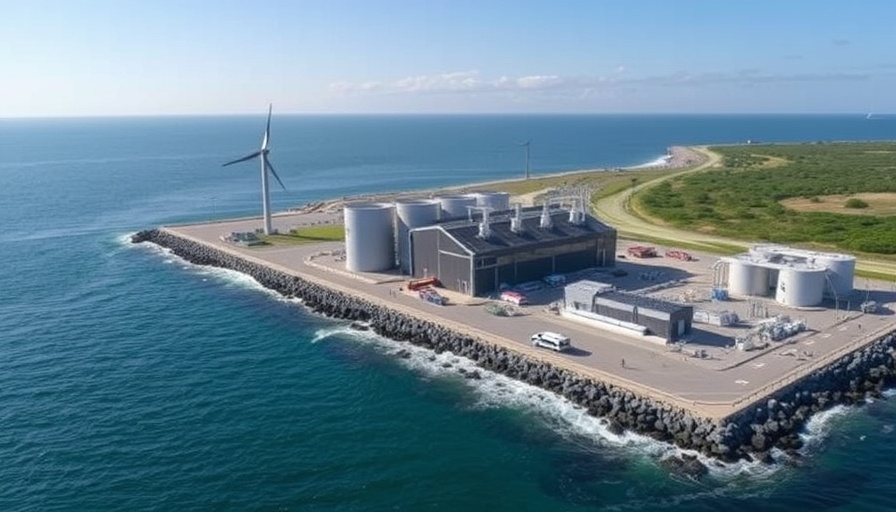
Transforming Waste into Power: The New Frontiers of Sustainability
In a world increasingly aware of environmental issues, sustainability isn't just a buzzword; it’s a fundamental necessity. SUS ENVIRONMENT’s innovative waste-to-energy plant by the sea is paving the way for a cleaner future. This pioneering facility not only reduces the burden on landfills but also generates renewable energy, demonstrating an effective synergy between waste management and energy production.
A Visionary Step Towards Energy Independence
The journey of waste-to-energy begins with understanding its potential. By converting waste materials into usable energy, we significantly decrease dependency on fossil fuels. This plant aims to transform local waste into clean energy, thus contributing to energy independence while promoting sustainable economic growth. It’s a model that could be replicated globally, urging other regions to leverage their waste in similar ways.
Community and Economic Benefits: More Than Just Energy
Beyond its environmental advantages, the plant stands to benefit local communities economically. By creating jobs in operations, maintenance, and management, it fosters entrepreneurship and boosts local economies. Additionally, educational initiatives surrounding the plant will increase awareness about waste management and renewable energy, engaging the community in sustainable practices.
Future Trends in Waste-to-Energy Technology
The advancement of technologies in waste-to-energy processes opens up numerous opportunities for marketing professionals. As energy producers seek innovative solutions, the convergence of digital marketing strategies with this sector is likely to grow. Professionals in marketing can leverage trends such as SEO updates, PPC advertising, and content marketing strategies to effectively communicate the benefits of sustainable energy solutions, making them more appealing to consumers.
Potential Challenges and Misconceptions
While waste-to-energy plants like SUS ENVIRONMENT’s offer tremendous potential, misconceptions abound. Some may argue these facilities pose environmental risks or promote waste generation. However, with stringent regulations and innovative technologies, these plants can actually mitigate pollution and promote recycling. Addressing these misconceptions through transparent digital communication will be crucial for gaining public support.
The Role of Digital Marketing in Promoting Sustainable Practices
Marketing plays a pivotal role in driving awareness about sustainable initiatives such as waste-to-energy. Embracing digital marketing tools—from social media advertising to comprehensive SEO strategies—businesses can foster engagement and drive conversions, ultimately leading to greater awareness and participation in sustainability efforts.
Join the Movement Towards Clean Energy
As the push for sustainable healthcare intensifies, businesses and consumers alike are called to support innovations like waste-to-energy plants. By understanding its impact and sharing this knowledge through effective marketing strategies, we can cultivate a future that prioritizes sustainability.
 Add Row
Add Row  Add
Add 




Write A Comment